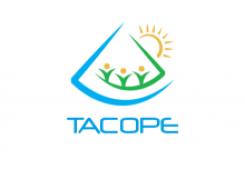
Tanzania Community Based Option for Protection and Empowerment
Joined February 2018
TACOPE works in Tanzania to promote adequate housing to women and young people and to advocate for SDG 5.
TACOPE brings together communities, government bodies, local organizations, donor agencies and the private sector to design and implement our development programs. We bring to bear all of our relevant areas of expertise to the needs identified by our partner communities and through integrated, holistic programming; we help people around the community to meet their needs in difficult circumstances. Our aim is to leave behind a legacy of sustainable change and communities that are empowered to drive their own future development.
TACOPE is non profit, non-governmental organization, (NGO) that prides itself on an approach which is accountable, efficient and effective. The organization official becomes registered in 11th July 2005 with the registration number 00NGO/0883.
TACOPE VISION: To see Tanzanian community being out of poverty and misery and the mission is “to facilitate community development and create an enabling environment in which children, youth and women realize and achieve their rights to be protected, educated and healthy as well as responsible members of society, while enjoying their livelihood”.
TACOPE dedicated to working with children, youth, women, families, school and their communities in Tanzania to reach their full potential by tackling the causes of poverty and justice. Development means improving the economic, social and environmental conditions of community in Tanzania. In practical terms development means, for example : increasing the prosperity of a country from the individual, family and community levels up; empowering people to participate in their own governance; and building the resilience of people of people against health challenges. Long term, sustainable development leads to stability and security; it reduces incentives to violence; reduce vulnerability to natural and man made emergencies. These changes benefit not only the people of the villages where we do our work, but the whole country.
